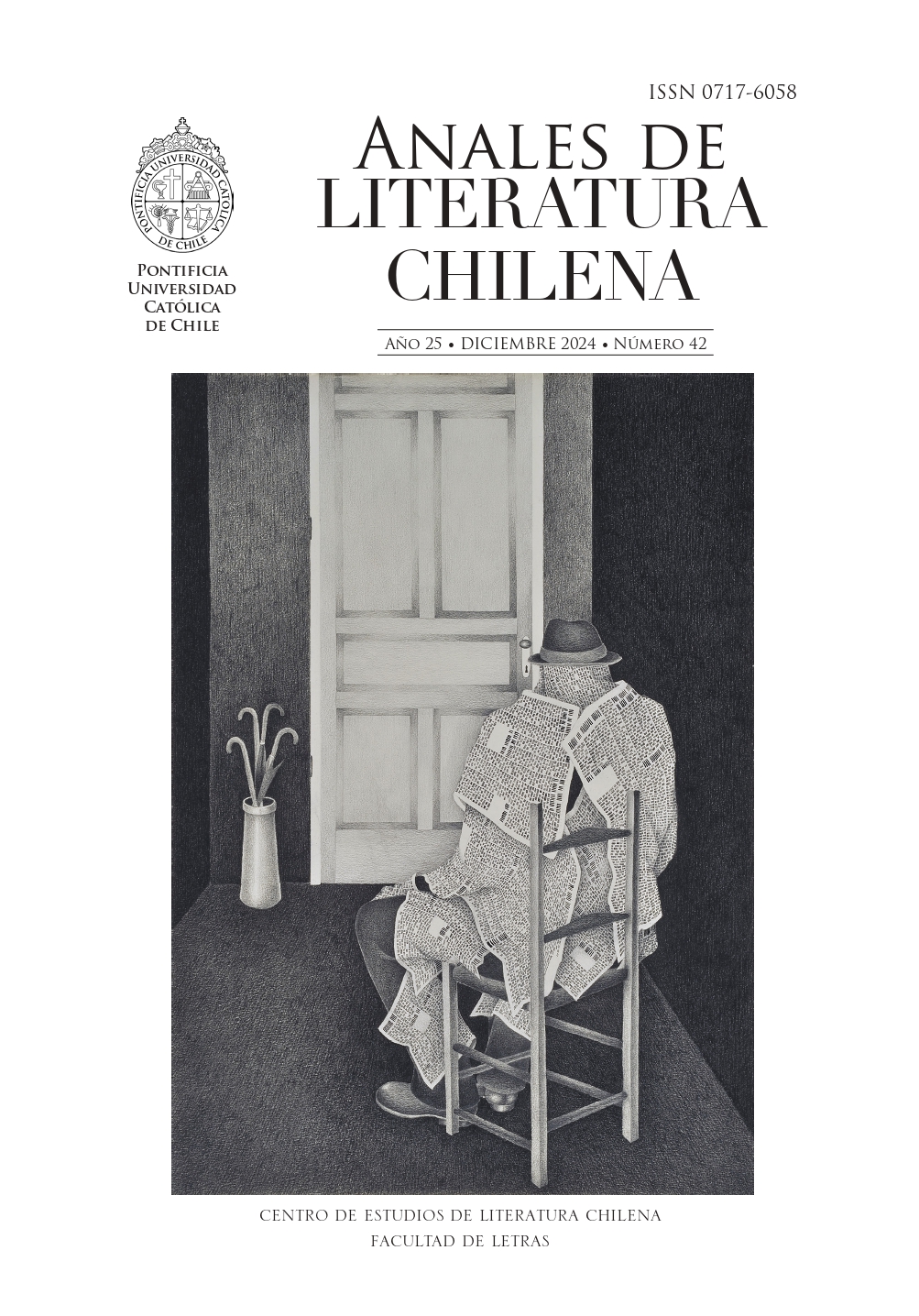ÁLVARO BISAMA AND THE LITERARY HISTORIES OF LITERATURE
DOI:
https://doi.org/10.7764/ANALESLITCHI.42.17Keywords:
Literary history of writers, critical fictions, tradition, Chilean literature, Álvaro BisamaAbstract
The central hypothesis of the article is that in literary works, readers find fragments, gestures, and a series of literary histories. Just as there are ways of thinking about literature, there are also specific, alternative, and sometimes disruptive conceptions of the past in literature. In the first part of the paper, this idea is explored theoretically, taking as a starting point a story by Andrés Gallardo, "Historia de la literatura" (History of Literature). The modalities and scope of these historical stories are discussed, with references to a selection of French bibliography and to the well-known cases of Jorge Luis Borges and Roberto Bolaño. The second part studies a central book in Álvaro Bisama's beginnings, One Hundred Chilean Books (2008), which, from a subjective point of view, reviews a group of books written in Chile over a span of five hundred years. In opposition to common reviews, Bisama outlines a personal vision of tradition, displaces the dominant lines of Chilean literary history and suggests a pessimistic view of his country's identity and past. The book, which integrates countercultural elements and emphasizes violence, failures, passions and conflicts, turns out to be an illustrative example of the initial hypothesis.
Downloads
Downloads
Published
How to Cite
Issue
Section
License

This work is licensed under a Creative Commons Attribution-NoDerivatives 4.0 International License.


